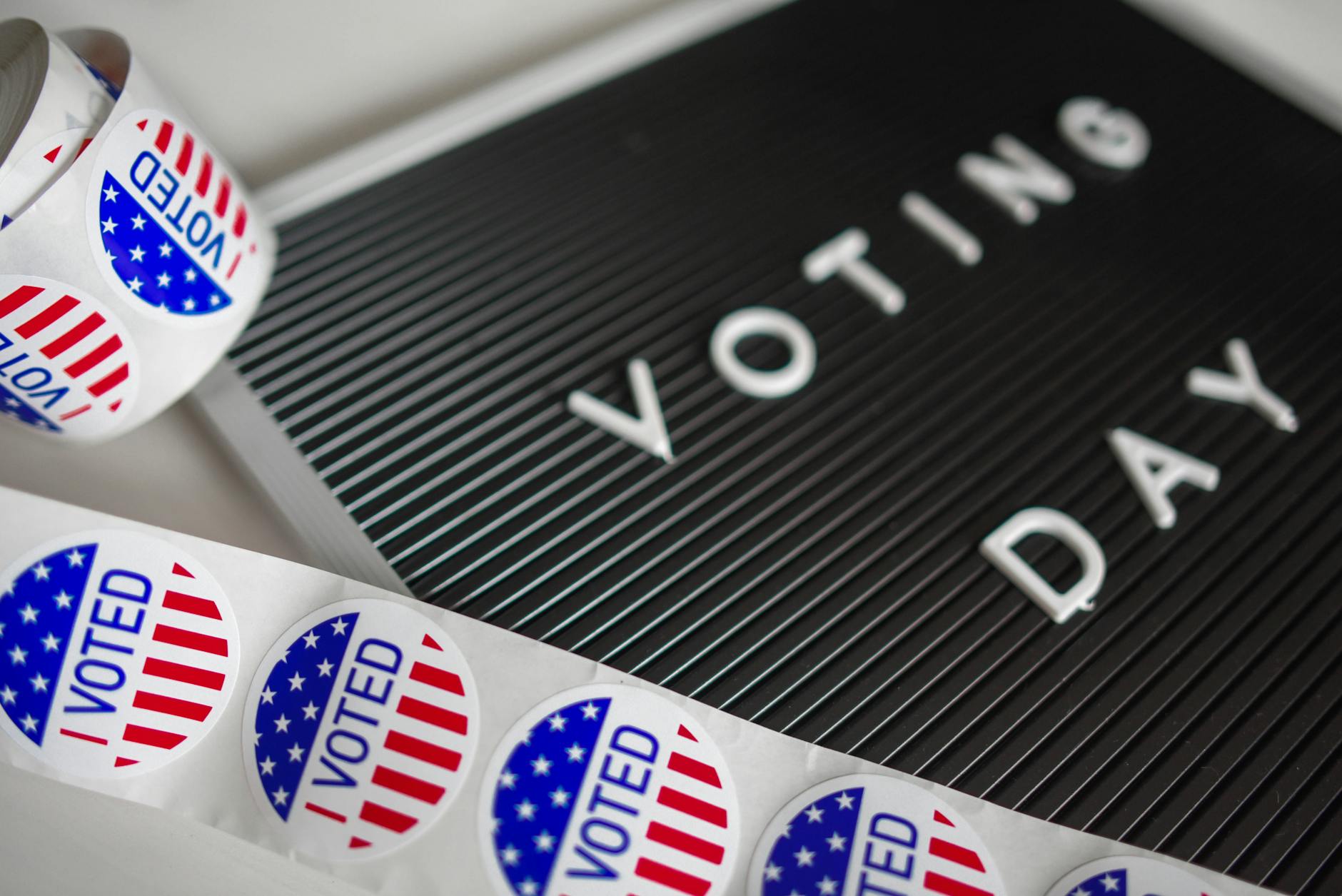Are you curious about the generation that witnessed the rise of technology and social change like no other? Dive into the realm of Baby Boomers, a group of individuals born between 1946 and 1964.
In this blog post, we will explore the unique characteristics, values, and significant impact Baby Boomers have had on society. From their work ethic to their approach to technology, we will unravel what sets this generation apart.
Join us as we delve deeper into the world of Baby Boomers, understanding their perspectives, challenges, and the valuable lessons we can learn from this influential cohort. Stay tuned as we uncover the legacy and lasting effects of the Baby Boomer generation.
Defining Baby Boomers
Baby Boomers, a term coined for individuals born between 1946 and 1964, are known for their significant impact on society. Let’s delve into the birth years and characteristics that define this generation and explore their profound influence on various aspects of society.
Birth Years and Characteristics
Baby Boomers were born in the post-World War II era, a period marked by optimism and economic prosperity. This generation is characterized by their strong work ethic, resilience, and commitment to traditional values. Baby Boomers witnessed rapid technological advancements, societal changes, and cultural shifts, shaping their perspectives and priorities.
Impact on Society
The Baby Boomer generation has left a lasting impact on society across multiple domains. They fuelled consumerism, drove economic growth, and revolutionized industries such as healthcare and finance. Baby Boomers also played a pivotal role in shaping political landscapes, advocating for civil rights, environmental protection, and gender equality.
Photo by Tim Mossholder
Baby Boomers in the Workforce
Baby Boomers, born between 1946 and 1964, have significantly influenced the modern workforce with their strong work ethic and traditional values. Let’s delve into how Baby Boomers navigate the professional landscape.
Work Ethics and Values
Baby Boomers are known for their dedication to work, valuing professionalism, loyalty, and punctuality. They often prioritise job security and consistency, viewing work as a central aspect of their identity. Their collaborative approach and respect for authority are rooted in their upbringing, shaping their interactions in the workplace. Baby Boomers’ commitment to their careers is driven by a sense of duty and responsibility, making them reliable and hardworking team members.
Challenges Faced by Baby Boomers at Work
Despite their experience and expertise, Baby Boomers encounter unique challenges in today’s dynamic work environment. Technological advancements and shifts in communication methods can present hurdles for some Baby Boomers who may struggle to adapt to rapid changes. Additionally, age discrimination and the pressure to keep pace with younger colleagues can create tension and feelings of being undervalued. Balancing traditional work practices with evolving industry standards poses a continual challenge for Baby Boomers striving to stay relevant and competitive in their careers.

Transition to Retirement
As Baby Boomers approach retirement age, the transition from a full-time career to retirement can be both exciting and daunting. Many Baby Boomers find meaning and purpose in their work, making retirement decisions a significant life milestone. Planning for financial security, exploring new hobbies, and maintaining social connections are critical aspects of the retirement transition for Baby Boomers. Embracing this new chapter allows Baby Boomers to reflect on their accomplishments and contributions while looking forward to newfound freedom and leisure.
In essence, Baby Boomers bring a wealth of knowledge and a steadfast work ethic to the workforce, navigating challenges with resilience and adapting to changing dynamics as they transition toward retirement.
Baby Boomers and Technology
The Baby Boomer generation, born between 1946 and 1964, has witnessed remarkable advancements in technology throughout their lives. Let’s delve into how this generation has adapted to new technologies and the challenges they may face.
Adoption of New Technologies
Baby Boomers have shown a growing interest in embracing new technologies, such as smartphones, social media platforms, and video calling apps. With the desire to stay connected with loved ones and access information swiftly, many Baby Boomers have integrated these technologies into their daily lives.
The accessibility and convenience offered by modern devices have made it easier for Baby Boomers to connect with family members, engage in hobbies, and even pursue online learning opportunities. This shift towards technology adoption has enabled them to lead more enriched and interactive lives, breaking down barriers of communication and enhancing their overall well-being.

Technology Gaps and Solutions
Despite the eagerness to embrace new technologies, Baby Boomers may encounter challenges due to generational gaps in digital literacy. Some Boomers may feel overwhelmed by the rapid pace of technological advancements and the complexities of certain devices or applications.
To bridge this gap, there are various solutions available to support Baby Boomers in improving their tech skills. Online tutorials, workshops, and specialized classes catered to older adults can provide valuable guidance on using technology effectively. Additionally, intergenerational learning opportunities where younger individuals can share their knowledge with Boomers create a nurturing environment for skill development.

Health and Lifestyle Trends
With advancing age, baby boomers are increasingly focusing on maintaining their health and wellness. Let’s dive into two key aspects shaping their lifestyle choices.
Focus on Wellness and Fitness
Baby boomers are embracing a holistic approach to well-being, prioritizing physical activity, healthy eating, and mental wellness. Many are exploring various fitness routines, from yoga and Pilates to low-impact exercises tailored to their needs. This generation values staying active to boost longevity and vitality.
In addition to physical fitness, baby boomers are keen on mindfulness practices such as meditation and stress management techniques. Mental wellness is a significant priority, with individuals seeking ways to reduce anxiety, enhance cognitive function, and foster emotional resilience.
Embracing a well-rounded wellness regimen not only improves their quality of life but also empowers them to age gracefully, staying active and independent well into their golden years.
Healthcare Preferences
When it comes to healthcare, baby boomers are inclined towards preventive measures and alternative therapies alongside traditional medical interventions. Integrative healthcare approaches, combining conventional medicine with complementary therapies like acupuncture, chiropractic care, and herbal remedies, are gaining popularity among this demographic.
Moreover, baby boomers are actively engaged in health screenings, regular check-ups, and vaccinations to prevent diseases and maintain optimal health. They value personalized care, seeking healthcare providers who listen attentively, involve them in decision-making, and offer comprehensive treatment plans tailored to their individual needs.
By proactively managing their health and being proactive in seeking appropriate medical guidance, baby boomers are taking charge of their well-being, paving the way for a healthier and more fulfilling lifestyle.

Baby Boomers and Travel
Travelling is an enriching experience that many baby boomers enjoy as they enter retirement. Exploring new destinations, immersing in different cultures, and creating lasting memories are some of the joys that travel brings to this generation.
Popular Travel Destinations
When it comes to travel destinations, baby boomers often seek a mix of relaxation, adventure, and cultural experiences. Popular choices include serene beach getaways where they can unwind and soak up the sun, historic European cities teeming with art and architecture, and scenic countryside retreats offering tranquillity and outdoor activities. The desire to explore exotic locations and embark on cruises to far-flung destinations also captivates many baby boomers.

Travel Habits and Preferences
Baby boomers often exhibit specific travel habits and preferences based on their priorities and preferences. Many prefer organized group tours that provide structured itineraries, security, and the opportunity to socialize with like-minded travelers. Additionally, comfort and convenience play a crucial role in their travel choices, with a preference for well-equipped accommodations and transportation options that offer ease of accessibility.
Overall, for baby boomers, travel is not just about reaching a destination but also about the journey itself. Embracing new experiences, connecting with diverse cultures, and relishing the freedom that travel brings are all integral parts of their adventures.
Financial Planning and Retirement
Planning for retirement is a crucial aspect of financial security for the future. It involves making informed decisions about saving, investing, and managing your money wisely to ensure a comfortable retirement lifestyle. Let’s delve into two key areas of financial planning for retirement: Saving and Investment Strategies and Retirement Planning Challenges.
Saving and Investment Strategies
When it comes to saving for retirement, adopting smart strategies can significantly impact your financial well-being in the long term. One effective approach is to start saving early to benefit from compounding interest and maximize your savings over time. Consider setting up automatic contributions to a retirement account, such as a pension scheme or individual retirement account (IRA), to build a nest egg for your retirement years.
Diversifying your investment portfolio is another essential strategy to mitigate risks and enhance returns. By spreading your investments across different asset classes, such as stocks, bonds, and real estate, you can reduce the impact of market fluctuations on your overall portfolio. It’s advisable to review and adjust your investment strategy periodically to align with your risk tolerance and financial goals.
Photo by Jsme MILA
Retirement Planning Challenges
While retirement planning is crucial, it comes with its own set of challenges that individuals need to navigate. One common challenge is estimating how much money you will need in retirement to maintain your desired lifestyle. Factors such as inflation, healthcare costs, and unexpected expenses can complicate this calculation. Seeking professional financial advice can help you create a realistic retirement plan tailored to your specific needs.
Another challenge is ensuring that your savings last throughout your retirement years. With increasing life expectancies, retirees are faced with the risk of outliving their savings. To address this challenge, consider strategies like annuities or phased withdrawal approaches to create a sustainable income stream in retirement. Additionally, staying informed about changes in pension regulations and government benefits can help you optimize your retirement income.
Photo by Lukas
Baby Boomers’ Impact on Politics
Baby boomers, born between 1946 and 1964, have significantly shaped the political landscape with their large numbers and active participation in the democratic process. Let’s delve into how this generation’s influence has impacted politics.
Political Engagement and Voting Patterns
Baby boomers have been known for their consistent engagement in politics, with high voter turnout rates in elections. Their sheer numbers make them a crucial voting bloc that politicians actively court. Baby boomers, who have witnessed significant historical events such as the Civil Rights Movement and the Vietnam War, are more likely to be politically active and exercise their right to vote. Their voting patterns often reflect their priorities on issues such as healthcare, social security, and economic stability.
Influence on Policy Decisions
The policy preferences of baby boomers have had a notable impact on shaping government decisions and priorities. As they approach retirement age, issues like pension reform, Medicare, and social welfare programs become increasingly important to them. Politicians often take these concerns into account when formulating policies to cater to the needs of this demographic group. The collective influence of baby boomers on policy decisions is evident in areas such as healthcare legislation, social security reforms, and job creation initiatives.

Conclusion
Baby boomers have had a significant impact on society, shaping cultural trends, economic patterns, and consumer behaviour. As this generation continues to age, their needs and preferences will continue to influence various industries, from healthcare to travel. Understanding and catering to the needs of baby boomers is crucial for businesses looking to thrive in today’s market. By adapting marketing strategies and products to meet the demands of this demographic, companies can tap into a large and influential consumer base. So, don’t underestimate the power of the baby boomer generation in shaping the future landscape of business and society as a whole.
Related Links:




